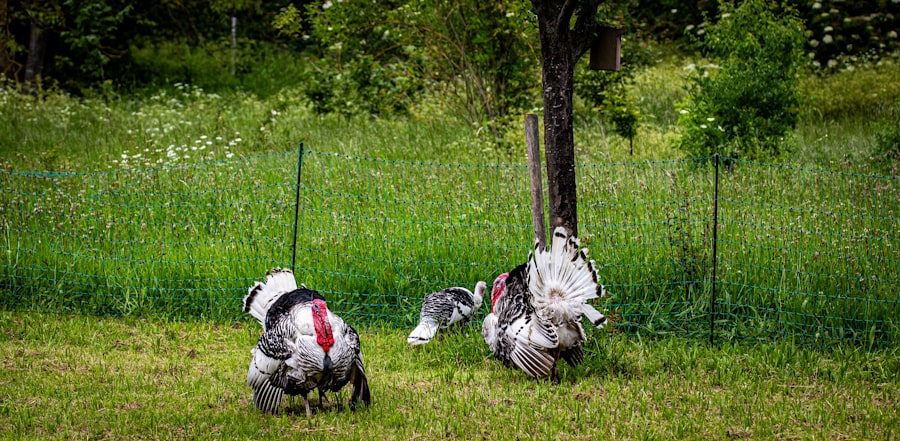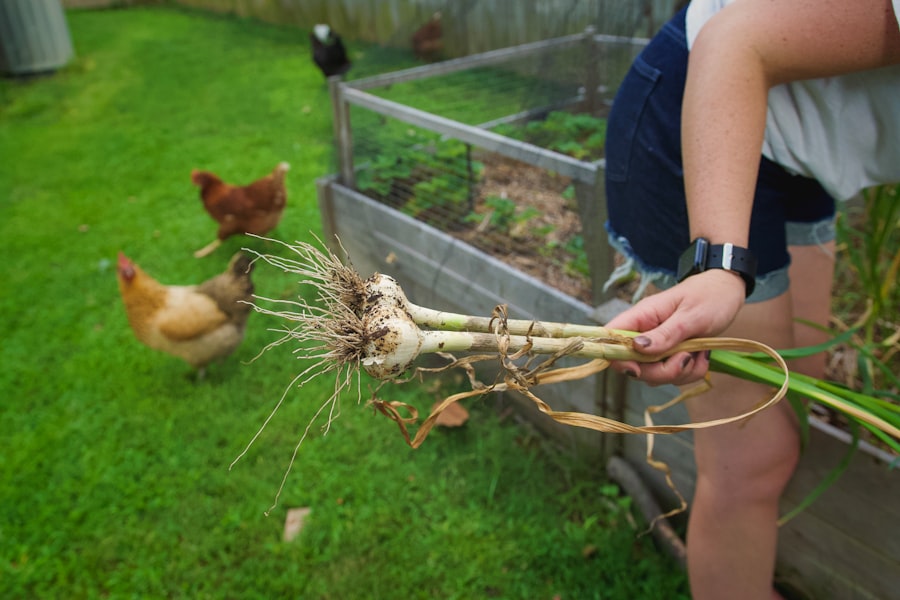When considering keeping chickens in a residential area, it is essential to understand the local ordinances and regulations governing such activities. These regulations vary significantly between municipalities, necessitating thorough research into the specific rules applicable to your area. Some cities strictly prohibit keeping chickens in residential zones, while others allow a limited number with proper permits.
Familiarizing yourself with specific regulations regarding the number of chickens allowed, coop requirements, and other restrictions is crucial. Certain areas may mandate minimum distances between coops and neighboring properties, while others might have guidelines for waste management and odor control. Adhering to these regulations ensures legal compliance and helps avoid potential issues.
Beyond local ordinances, it is important to consider any homeowners’ association (HOA) rules that may apply to your property. Some HOAs impose their own restrictions on keeping chickens. Reviewing the bylaws and regulations governing your neighborhood is necessary to prevent conflicts with neighbors and ensure a positive experience for all involved parties.
Table of Contents
- 1 Zoning laws and residential restrictions
- 2 Health and safety concerns
- 3 Noise and nuisance considerations
- 4 Potential benefits of keeping chickens in a residential area
- 5 Legal requirements for keeping chickens
- 6 Resources for further information and support
- 7 FAQs
- 7.1 What are the legal restrictions for keeping chickens in a residential area?
- 7.2 Do local zoning laws allow for keeping chickens in residential areas?
- 7.3 What are some common restrictions for keeping chickens in residential areas?
- 7.4 Are there any health or safety concerns associated with keeping chickens in residential areas?
- 7.5 What steps can I take to legally keep chickens in a residential area?
Key Takeaways
- Understanding local ordinances and regulations is crucial before keeping chickens in a residential area
- Zoning laws and residential restrictions may limit or prohibit the keeping of chickens
- Health and safety concerns such as disease transmission and waste management should be carefully considered
- Noise and nuisance considerations should be taken into account to ensure harmony with neighbors
- Potential benefits of keeping chickens in a residential area include fresh eggs, pest control, and educational opportunities for children
Zoning laws and residential restrictions
Zoning Laws and Land Use Regulations
Zoning laws play a crucial role in determining whether you can keep chickens in a residential area. These laws regulate land use and development, dictating what activities are allowed in different areas. In many cases, residential areas are zoned specifically for single-family homes, which may have restrictions on agricultural activities such as keeping livestock.
Researching Zoning Laws and Permits
It is essential to research the zoning laws that apply to your property to determine if keeping chickens is allowed. Some areas may have specific provisions for keeping small numbers of chickens as part of a residential use, while others may prohibit it altogether. Understanding these laws can help you determine whether or not you can legally keep chickens on your property and what steps you may need to take to obtain any necessary permits or approvals.
Residential Restrictions and Neighborhood Rules
In addition to zoning laws, residential restrictions such as deed restrictions or covenants may also impact your ability to keep chickens. These restrictions are often put in place by developers or homeowners’ associations and can place limitations on certain activities within a neighborhood. It is important to review any such restrictions that apply to your property to ensure that you are in compliance with all applicable rules and regulations.
Health and safety concerns

When considering keeping chickens in a residential area, it is important to address any potential health and safety concerns that may arise. Chickens can carry certain diseases such as salmonella, avian influenza, and E. coli, which can pose a risk to both humans and other animals.
It is important to take proper precautions to minimize the risk of disease transmission and ensure the health and safety of both the chickens and the surrounding community. Proper sanitation and waste management are crucial for preventing the spread of disease and minimizing odor. Regular cleaning of the coop and proper disposal of waste can help reduce the risk of disease transmission and prevent unpleasant odors from becoming a nuisance to neighbors.
Additionally, it is important to provide adequate space and ventilation for the chickens to prevent overcrowding and reduce the risk of disease transmission within the flock. In addition to health concerns, safety considerations should also be taken into account when keeping chickens in a residential area. Proper fencing and secure enclosures can help prevent chickens from wandering into neighboring properties or becoming prey to predators.
It is important to take measures to ensure that the chickens are kept safe and secure while also minimizing any potential disruptions to the surrounding community.
Noise and nuisance considerations
One of the primary concerns associated with keeping chickens in a residential area is the potential for noise and nuisance issues. Roosters, in particular, are known for their loud crowing, which can be disruptive to neighbors, especially in densely populated areas. It is important to consider the potential impact of noise on the surrounding community and take steps to minimize any potential disturbances.
Proper coop design and placement can help reduce noise levels by providing adequate insulation and soundproofing. Additionally, keeping only hens, which do not crow, can help minimize noise concerns in residential areas. It is important to be mindful of the potential impact of noise on neighbors and take steps to address any concerns that may arise.
In addition to noise concerns, nuisance issues such as odor and waste management should also be taken into consideration when keeping chickens in a residential area. Proper waste management practices, such as regular cleaning of the coop and proper disposal of waste, can help minimize odor and prevent it from becoming a nuisance to neighbors. By addressing these concerns proactively, you can help ensure a positive experience for both yourself and your neighbors.
Potential benefits of keeping chickens in a residential area
Despite the potential challenges associated with keeping chickens in a residential area, there are also many potential benefits to be gained from this activity. Chickens can provide a sustainable source of fresh eggs, as well as natural pest control for gardens and yards. Additionally, they can serve as educational tools for children and provide a unique opportunity for families to connect with nature and learn about animal husbandry.
Keeping chickens can also promote self-sufficiency and sustainability by reducing reliance on store-bought eggs and providing a source of organic fertilizer for gardens. Chickens can help reduce food waste by consuming kitchen scraps and turning them into valuable nutrients for the soil. Additionally, they can contribute to a more sustainable lifestyle by reducing the carbon footprint associated with food production and transportation.
Furthermore, keeping chickens can provide a sense of connection to the natural world and promote a greater appreciation for the environment. By caring for chickens and observing their behavior, individuals can gain a deeper understanding of animal welfare and develop a greater sense of empathy for living creatures. Overall, keeping chickens in a residential area can offer numerous benefits for both individuals and communities alike.
Legal requirements for keeping chickens

Legal Requirements for Keeping Chickens
In addition to understanding local ordinances and regulations, it is essential to be aware of the legal requirements for keeping chickens in a residential area. Some municipalities may require individuals to obtain permits or licenses to keep chickens on their property. These permits may have specific requirements regarding coop design, waste management, and other aspects of chicken care.
Compliance with Applicable Laws
It is crucial to research the specific legal requirements that apply to your area and ensure that you are in compliance with all applicable laws. Failure to obtain the necessary permits or adhere to legal requirements can result in fines or other legal consequences. By taking the time to understand and fulfill these legal obligations, you can ensure that you are operating within the bounds of the law and avoid any potential legal issues.
Liability Issues and Risk Management
Additionally, it is important to be aware of any liability issues that may arise from keeping chickens in a residential area. Individuals who keep chickens on their property may be held responsible for any damages or injuries caused by their animals. It is essential to take measures to prevent potential hazards and minimize any risks associated with keeping chickens in order to protect both yourself and your neighbors.
Resources for further information and support
For individuals interested in keeping chickens in a residential area, there are numerous resources available for further information and support. Local agricultural extension offices or animal control agencies may provide guidance on local regulations and best practices for keeping chickens. Additionally, there are many online forums and communities dedicated to backyard chicken keeping where individuals can seek advice from experienced chicken owners.
There are also numerous books and publications available on the topic of backyard chicken keeping that provide valuable information on coop design, chicken care, and legal considerations. These resources can offer valuable insights into best practices for keeping chickens in a residential area and help individuals navigate the various challenges associated with this activity. Furthermore, joining local poultry or homesteading groups can provide opportunities for networking with other chicken enthusiasts and gaining support from like-minded individuals.
These groups often host workshops, events, and educational programs that can help individuals learn more about chicken care and connect with others who share their interests. In conclusion, keeping chickens in a residential area can offer numerous benefits but also comes with its own set of challenges. By understanding local ordinances and regulations, zoning laws, health and safety concerns, noise considerations, potential benefits, legal requirements, and available resources for support, individuals can make informed decisions about whether or not keeping chickens is right for them.
With proper planning, education, and adherence to legal requirements, individuals can enjoy the many rewards that come with raising chickens while also being considerate of their neighbors and community.
If you’re considering keeping chickens in a residential area, you may also be interested in learning about what vegetables quails eat. According to Poultry Wizard, quails can eat a variety of vegetables such as lettuce, spinach, and carrots. Understanding the dietary needs of different poultry can help you make informed decisions about keeping them in your backyard.
FAQs
What are the legal restrictions for keeping chickens in a residential area?
In many residential areas, there are specific regulations and restrictions regarding the keeping of chickens. These may include limits on the number of chickens allowed, coop size and placement, noise regulations, and waste management requirements.
Do local zoning laws allow for keeping chickens in residential areas?
Local zoning laws vary by area, and some may permit the keeping of chickens in residential areas while others may prohibit it. It is important to check with your local government or homeowners’ association to understand the specific regulations in your area.
What are some common restrictions for keeping chickens in residential areas?
Common restrictions for keeping chickens in residential areas may include limits on the number of chickens allowed, requirements for coop size and placement, noise regulations, and waste management guidelines. These restrictions are in place to ensure the well-being of the chickens and to minimize any potential disturbances to neighbors.
Are there any health or safety concerns associated with keeping chickens in residential areas?
There can be health and safety concerns associated with keeping chickens in residential areas, such as the potential for the spread of diseases, odors, and noise disturbances. It is important for chicken owners to adhere to proper hygiene and waste management practices to mitigate these concerns.
What steps can I take to legally keep chickens in a residential area?
To legally keep chickens in a residential area, it is important to first check the local zoning laws and regulations. Obtain any necessary permits or approvals, adhere to any restrictions or guidelines, and ensure that the chickens are properly cared for and managed to minimize any potential disturbances to neighbors.
Meet Walter, the feathered-friend fanatic of Florida! Nestled in the sunshine state, Walter struts through life with his feathered companions, clucking his way to happiness. With a coop that’s fancier than a five-star hotel, he’s the Don Juan of the chicken world. When he’s not teaching his hens to do the cha-cha, you’ll find him in a heated debate with his prized rooster, Sir Clucks-a-Lot. Walter’s poultry passion is no yolk; he’s the sunny-side-up guy you never knew you needed in your flock of friends!







